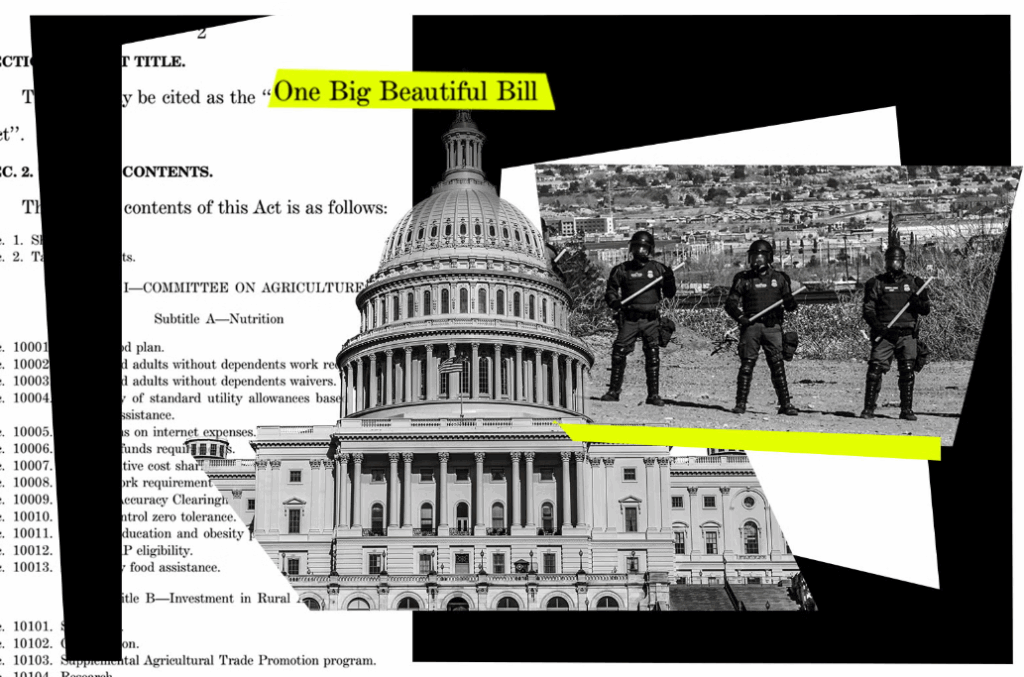Former President Donald Trump’s latest immigration bill has been met with both fierce support and heavy criticism. This piece of legislation promises to reshape the nation’s immigration policies significantly. Whether it’s about tightening borders or overhauling the existing system, the bill’s far-reaching implications will undoubtedly leave a mark on America’s future.

In this article, we’ll dive deep into what Trump’s proposed immigration bill entails, who stands to benefit, and who might bear the brunt of the changes. With the nation divided on the issue, we’ll also explore what this means for the broader American public and the nation’s values on immigration.
The Shocking Impact of Trump’s Immigration Bill
| Key Insight | Details |
|---|---|
| Border Security | The bill introduces stricter border control measures, including a new wall extension and more patrols. |
| Merit-Based System | Shifting to a merit-based immigration system, focusing on skills and education over family ties. |
| Path to Citizenship | The bill would create a more complex and slower path to citizenship for many current immigrants. |
| Effect on Undocumented Immigrants | It provides fewer protections for undocumented workers, with tougher penalties for employers hiring them. |
Trump’s proposed immigration bill promises sweeping changes to the U.S. immigration system. While it aims to streamline immigration for high-skilled workers and improve border security, it could have significant negative impacts on low-skilled immigrants, families, and businesses that rely on immigrant labor. Whether it becomes law or not, the debate surrounding this bill will continue to shape America’s political and social landscape for years to come.
What Does Trump’s Immigration Bill Propose?
At the core of Trump’s immigration bill is the goal of reducing the number of immigrants entering the U.S. while restructuring how immigration happens. Here are some of the major proposals:
- Enhanced Border Security: The bill calls for the continuation of border wall construction, an extension of physical barriers, and an increase in security measures at both land and sea borders. It also includes more advanced technology and drones to monitor areas of high traffic.
- Shifting to a Merit-Based System: One of the most controversial aspects of the bill is the proposal to abandon the family-based immigration system in favor of a merit-based model. Under this system, individuals will be evaluated based on skills, education level, work experience, and the ability to contribute to the U.S. economy. This approach heavily favors high-skilled workers and could reduce the number of family reunifications.
- More Stringent Visa Requirements: For those seeking temporary work visas, the bill proposes stricter qualifications, including a more rigid vetting process. Employers who hire undocumented workers will face harsher penalties, aiming to discourage illegal employment.
- Slower Path to Citizenship: The proposed bill includes measures that make it more difficult and time-consuming for undocumented immigrants to obtain citizenship. For instance, it would restrict the use of social services by immigrants and increase the requirements for naturalization.
Who Stands to Benefit?
High-Skilled Immigrants: The shift to a merit-based system could benefit immigrants with advanced degrees, specialized skills, and significant work experience. These individuals would have a clearer and faster route to legal status in the U.S. compared to those who might have previously relied on family connections.
Businesses in Need of Skilled Labor: Companies looking for highly educated and skilled workers in fields like technology, healthcare, and engineering may find it easier to recruit talent from abroad. It could potentially reduce labor shortages in certain sectors where there is a demand for specific expertise.
Immigration Enforcement Agencies: Border patrol, ICE (Immigration and Customs Enforcement), and other agencies responsible for enforcement would receive significant funding increases, making them better equipped to carry out the bill’s tougher policies.
Who Will Be Impacted?
Low-Skilled Immigrants: The biggest losers in the bill’s proposed framework are likely to be immigrants who don’t meet the qualifications for the merit-based system. Those who rely on family reunification or who work in less skilled sectors may find it significantly harder to immigrate or stay in the U.S.
Undocumented Immigrants: The bill is tough on undocumented immigrants, offering fewer protections than current laws. There would be stricter penalties for employers who hire undocumented workers, potentially driving more people into the underground economy.
Families of Immigrants: Many families could be affected by the change from family-based immigration to a merit-based system. The ability for U.S. citizens to sponsor relatives for immigration would be restricted, potentially separating families.

What Are the Wider Implications?
Economic Impact: While the bill is designed to make immigration more selective, its broader impact on the economy is a matter of debate. On the one hand, high-skilled workers could inject innovation and expertise into sectors like technology and healthcare. On the other hand, restricting low-skilled workers could hurt industries like agriculture, construction, and service sectors, which heavily rely on immigrant labor.
Cultural and Social Impact: The U.S. has long prided itself on being a melting pot of cultures, with immigration being an essential part of the country’s identity. By reducing the number of immigrants and limiting family reunification, the bill could shift the nation’s social fabric. Critics argue that this could foster a more exclusionary society.
Political Consequences: The immigration issue is a divisive topic in American politics. While Trump’s base would likely support the bill, many Democrats and immigration advocates are expected to strongly oppose it. If the bill is passed, it could become a major talking point in the upcoming elections, potentially influencing voter turnout and political alignments.
What Are the Critics Saying?
Many advocates of immigration reform have voiced strong opposition to Trump’s bill. Groups like the American Civil Liberties Union (ACLU) and the American Immigration Council argue that the bill will hurt low-income and immigrant communities. They argue that it creates a two-tiered system, favoring the wealthy and educated over the working class.
Furthermore, critics argue that the proposed changes could worsen labor shortages in critical industries. For example, farmers, construction workers, and restaurant owners often rely on immigrant labor, and the bill’s restriction on low-skilled workers could negatively affect these industries.
Can This Bill Pass?
The chances of the bill becoming law depend heavily on the political landscape in Washington, D.C. While Republicans might rally behind the bill, Democrats are expected to oppose it, especially given the proposed restrictions on family-based immigration and the challenges it presents for undocumented immigrants.
For the bill to pass, it would need bipartisan support, which appears unlikely in its current form. However, parts of the bill—especially those dealing with border security—could find some middle ground if modified, as there is some consensus on the need to strengthen border control.
FAQs
What are the key changes proposed in Trump’s immigration bill?
The bill proposes shifting to a merit-based immigration system, tightening border security, restricting family-based immigration, and increasing penalties for undocumented workers and employers who hire them.
How will this bill affect undocumented immigrants?
Undocumented immigrants will face tougher penalties and have fewer opportunities for legal status. The path to citizenship would become more difficult, and undocumented workers may find it harder to secure employment legally.
Is there any bipartisan support for this immigration bill?
It is unlikely that the bill will gain bipartisan support in its current form. While some border security measures may find common ground, the restrictions on family-based immigration and the impact on low-skilled workers may prevent Democratic support.






